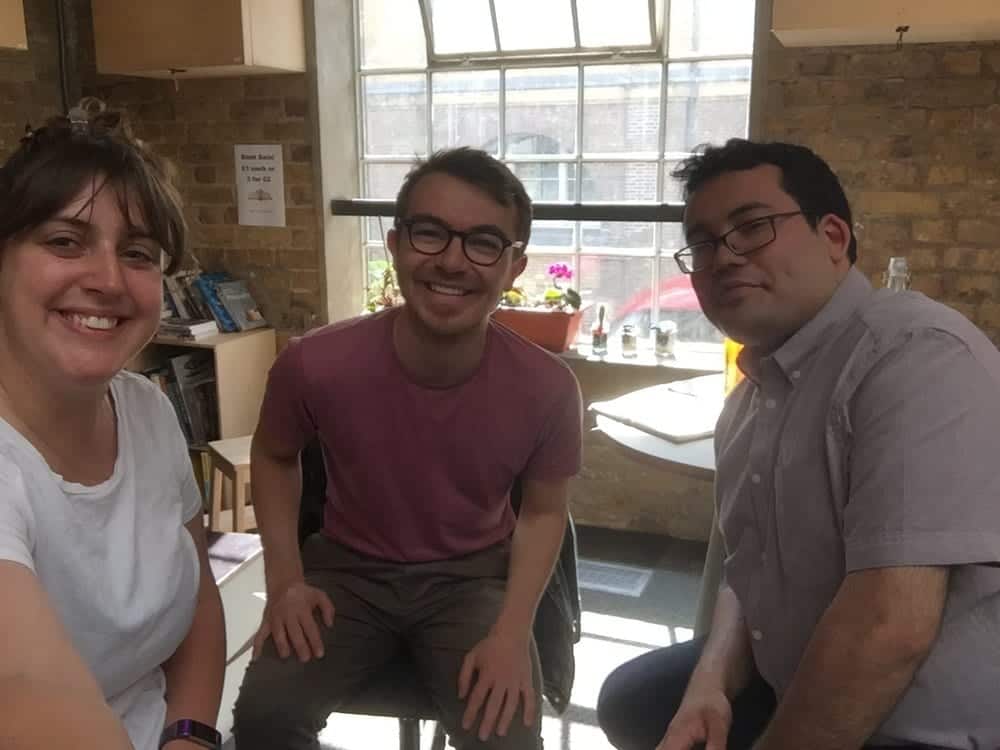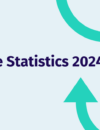
We’ve previously written on our blog about the importance of valuing neurodiversity in the workplace. Today, we wanted to speak to Oli Monks, the Founder of Place with Purpose, to find out more about how they’re opening up a trial co-working space that’s specifically designed for the neurodiverse community.
Hi Oli! Tell us more about yourself and your work founding Place with Purpose.
Hello everyone! My name’s Oli Monks and I’m the Founder of Place with Purpose. I have a background in working within both corporate and startups and have a real passion for the role business can play in tackling some of our most prevalent challenges in society today.
One of those we’re tackling, is one I am personally connected to myself. I have a younger brother who’s autistic and I have taken a real interest in the prospects and opportunities that are available for the autistic and wider, neurodiverse community.
While there has been good progress over the past few years, there is still a real dearth in support and opportunities for autistic adults in the UK. It is like somehow we collectively forgot about autistic people as soon as they turned 18.
No sole organisation can solve this on their own but we are determined to make a dent. We’re set-up to create working spaces designed with neurodiversity in mind. Two key areas of social impact we are looking to tackle are that of employment and social isolation.
How is Place with Purpose helping others to understand autism in the workplace?
Autism is now something that most of us in the UK will have heard of but there is still a great disconnect in our level of understanding. At Place with Purpose, we’re helping others to understand autism in the workplace by showing, not just telling people.
I appreciate that many of us in the workplace are told about a lot of physical and hidden conditions that it can be hard to keep up with, let alone understand. Those that do, often have a personal connection or have already worked with an autistic colleague. We want to be visual and demonstrate what an autistic workplace could look like, to demystify the adjustments that could transform an individual’s experience of the company and with it, keep a productive employee in the business.
But more than that, we are changing the tone of the conversation. Our work is about demonstrating what autistic and neurodiverse people can do if they are in an environment that doesn’t drain them but works for them. The members in our co-working space come from across industries, roles and employment status from full-time staff looking for a suitable flexible working environment to someone unemployed searching for a place where community and work is the focus.
As you mention on the Place with Purpose blog, currently only 16% of autistic adults are in full-time work in the UK. Through your research and work so far, why do you think this is?
It’s a shocking statistic for me, especially when you benchmark it against the employment statistics for people with disabilities in the UK, which is at 50 percent. Clearly for a situation to be so drastic it is beyond any coincidental factors. There are many factors at play but I will focus on two that I believe are influencing this the most:
A lack of understanding
This is on both parts and it would be unfair for employers to absolve all of the responsibility for this. There is a need for autistic people to better understand what is expected of them in the workplace and equally, what they can expect from their employer.
I’ve certainly seen and heard of many instances throughout the application process and in the workplace where both the line manager and the autistic employee have misinterpreted each others actions, often leading to a significant role change or the end of their employment. It is so regularly the case that employers struggle with a lack of available information and autistic people are overwhelmed with too much.
The application process for roles
This year, I’ve spent a large part of every working week supporting autistic candidates through their job searching and application process. Interview questions such as “tell me about yourself” are so broad and vague, it can be difficult to understand what the interviewer wants to hear. Unclear questions or surprise elements can be enough to completely overwhelm an autistic candidate and in my opinion, totally unnecessarily.
Before even reaching an interview, job descriptions can be a big contributing factor. There are a wide range of roles across industries that autistic people would excel at, given the chance. However, many job descriptions are clearly copied from previous roles or old templates which stress the need for “outstanding communication skills” or “someone with our company’s DNA”. They may be essential requirements for your role and in that case, fair enough. Yet too many times I’ve supported a candidate through a process to find out those factors were not essential to the role or worse still, I’ve supported people who have self-selected themselves out of a role that in reality, they could have been brilliant in.
Clearly, no two autistic people are the same. What are some of the assumptions and stereotypes that an autistic person faces in the workplace?
Great question and I could go on for ages debunking so many assumptions and stereotypes that exist!
Many of us have thankfully moved past the Rain Man fuelled stereotype that all autistic people are geniuses.
It is worth saying that autistic people are similar to neurotypical people in the sense that they have a wide range of strengths and weaknesses. Their autism may mean they find some tasks easier than you but it may also mean they find other aspects more of a challenge. The only way you will find that out is by asking and by being supportive.
Another crude assumption or stereotype is that somehow autistic people are robotic. It couldn’t be further from the truth. Every autistic person I’ve had the privilege to meet shares the same aspirations of having friends, being loved and finding a job and work that they can be proud of.
Finally, another assumption faced is that an autistic person is far more difficult to deal with in the workplace. This is a dangerous one. Yes, absolutely there are many instances where an autistic colleague may require more support in the early stages of their role in getting used to the role and environment but many solutions to the challenges they may face, can be solutions for the team also. Once settled, autistic employees can be some of the most loyal and productive members of any team – you can find out more on this from the IT consultancy firm Auticon’s report.
What are some of the differences in support that an autistic person might need in the workplace?
This can vary widely and the best advice I can give here is to make sure your businesses support is person-centred.
One small adjustment that is often made is providing ear defenders and if possible, a designated quiet room for an autistic colleague in the workplace. Most offices now are big on open-plan for a lot of reasons but this can lead to a groundswell of noise and can easily be overwhelming for anyone who’s sensitive to noise. Offering noise-defenders or a quiet space is a simple and effective way of supporting your colleague to cope more effectively.
Another may be in providing in-person support, which could be once a week or once a month. This is effective in helping to mediate any situations at work or even just helping to educate line managers on what support could be provided. A popular example of this working is in Deutsche Bank’s current programme, where workplace support is provided for the autistic employee and line manager. Often, the need for this support decreases the longer they are in the role. Based in London, AS Mentoring are one of a few organisations who can offer this support.
What more can recruiters and hiring teams be doing to ensure neurodiverse workplaces?
They should actually recognise neurodiverse talent. Neurodiverse workplaces are no good if there is no neurodiverse talent working there.
So much is made now of how our teams benefit from employees who think differently – well, neurodiverse people literally do. I’d ask recruiters and hiring teams to look at their processes and where their talent pool is and ask whether that’s helping them reach that audience.
What’s next on the agenda for Place with Purpose?
In the short term, we’re focussed on building out our co-working space and trying to learn as much as we can about our workplaces. It’s something I’m excited to be learning about for a long time.
We have a lot of plans for what we can contribute towards in the future, where we hope to have a space in every city in the UK. Stay tuned!
 Oli and the Place with Purpose team
Oli and the Place with Purpose team
You can find out more about Place with Purpose’s work on their website, Twitter page, or by joining their LinkedIn group “Neurodiversity in the workplace”.





